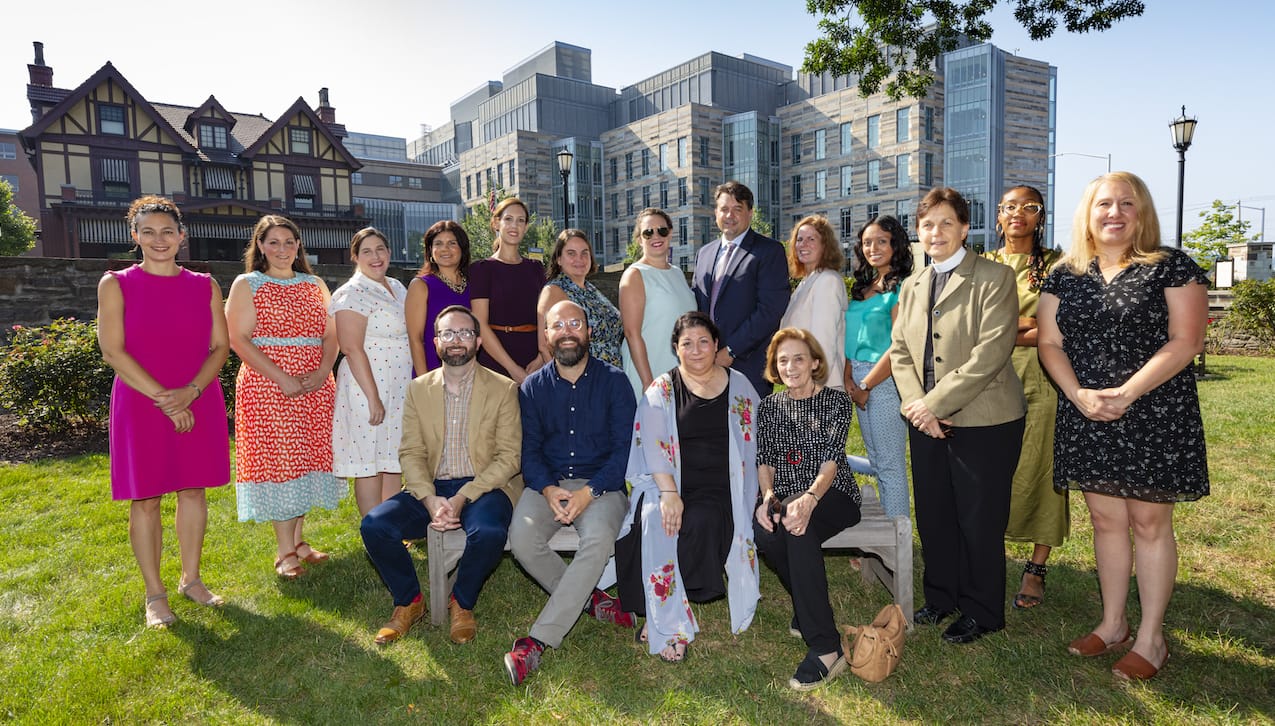University Awarded NEH Grant for Scranton’s Story

The National Endowment for the Humanities awarded a $152,791 grant to The University of Scranton to support a multifaceted two-year project that seeks to capture the unique story of Scranton and relate it to the history of the United States. The project, called “Scranton’s Story, Our Nation’s Story,” involves multiple community partners and relates Scranton’s industrial, religious and ethnically diverse heritage and aspirations to the history of the nation, responding to the NEH special initiative “A More Perfect Union” commemorating the upcoming 250th anniversary of the United States. The project also seeks to share underrepresented Scranton stories, including that of recent immigrants, Black Scrantonians and Indigenous history, in order to stitch together a full local and national narrative.
The University was among just 239 projects in the nation to receive NEH support and among 16 projects in Pennsylvania to receive funding. The grants awarded “demonstrate the resilience and breadth of our nation’s humanities institutions and practitioners,” said NEH’s Acting Chairman Adam Wolfson in a news release announcing $28.4 million in funding support for the 239 projects.
“We are grateful to the National Endowment for the Humanities for its support of this important project for the University, Scranton and the nation,” said Rev. Joseph Marina, S.J., president of The University of Scranton. “The humanities play an integral part of the transformational nature of the Jesuit education we provide to our students. This project will give our students and the greater community a more profound understanding of the human transformations that have occurred in the lives of Scrantonians and Americans.”
“We have lots of stories to tell about how the Electric City has powered and shaped our great nation over the course of our history, and I can’t think of anyone better to lift them up than The University of Scranton,” said Rep. Matt Cartwright. “I am very much looking forward to seeing the results of this project, but I know it will offer all of us new reasons to be proud of our Northeastern Pennsylvania ties.”
“Scranton’s Story, Our Nation’s Story” incorporates eight themes ranging from how Scranton has been portrayed in the popular imagination, to its industrial era growth, Indigenous history, religious tapestry, diverse immigrant populations – past and present – and the role it played in the Underground Railroad and Black history. Throughout, civic engagement, founding debates, and local and national identity will be explored by considering how the Scranton, and American, story may be understood anew 250 years later and the roles and responsibilities of local citizens.
The programs will involve lectures with question and answer interactive sessions, panel discussions with audience responses, public facilitated dialogues, and story exchanges, as well as walking and bus tours, youth writing workshops, and oral history story collection and community mapping projects that will provide new humanities material and content for discussion.
“As a broad team of university faculty and community organization partners, we are proud and excited to be able to highlight Scranton’s multi-faceted story in the context of our nation’s story with the support of the NEH,” said Julie Schumacher Cohen, assistant vice president for Community and Government Affairs and Project Director. “All events will enable audience and community participation and engagement, drawing on humanities resources in history, literature, philosophy and religious studies and facilitate story-telling and dialogue to build civic engagement.”
Cohen noted the facilitated dialogues are based on public and student dialogues run by the University combining the reflective, structured dialogue methods of non-profit Essential Partners and the non-sectarian tradition of reflection and discernment of St. Ignatius of Loyola.
Events will begin in Oct. 2021 and end in fall 2023.
Community organizations collaborating on the project include: Black Scranton Project, Center for the Living City, Lackawanna County Arts and Culture Department, The Lackawanna Historical Society, Lackawanna County Immigration Inclusion Committee, Narrative 4, the Scranton Area Ministerium, United Neighborhood Centers of Northeastern Pennsylvania and WVIA.
The project comprises a range of University offices. In addition to Cohen, project team members include, from The University of Scranton: Patrick Clark, PhD., associate professor of theology and religious studies; David J. Dzurec, Ph.D., professor and chair of the Department of History; Colleen Farry, assistant professor and digital services librarian; Teresa A. Grettano, Ph.D.; associate professor of English and theatre; Gregory W. Jordan, executive director of the Slattery Center for the Humanities; Aiala Levy, Ph.D., assistant professor of history, Latin American studies, and women’s and gender studies; Michelle Maldonado, Ph.D., dean of the College of Arts and Sciences; Matthew Meyer, Ph.D., associate professor of philosophy and faculty director of the Gail and Francis Slattery Center for the Humanities; Sondra Myers, senior fellow for international, civic and cultural projects and director of the Schemel Forum; Jessica A. Nolan, Ph.D., professor of psychology; Adam J. Pratt, Ph.D., associate professor of history; Sheli E. Pratt-McHugh, assistant dean of the Weinberg Memorial Library; Hank Willenbrink, Ph.D., Theatre Program director and associate professor of English and theatre; and Carolyn M. Bonacci, community and civic engagement coordinator. Community humanities partners include: Erika Funke, senior producer, classical producer and program host at WVIA Public Media; Maureen McGuigan, director of the Lackawanna County Arts and Culture Department; Glynis Johns, founder and CEO of the Black Scranton Project; Sarah Piccini, assistant director of the Lackawanna Historical Society; and Mary Ann Moran-Savakinus, director of the Lackawanna Historical Society.
















